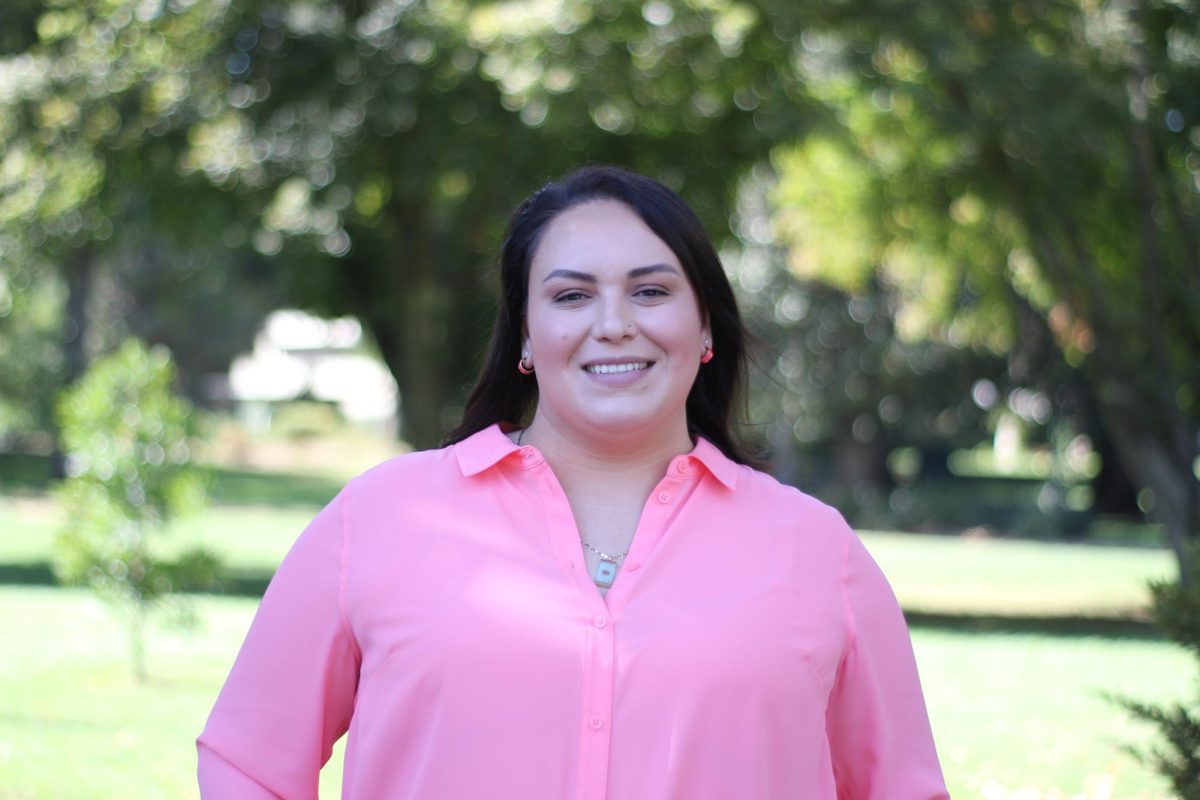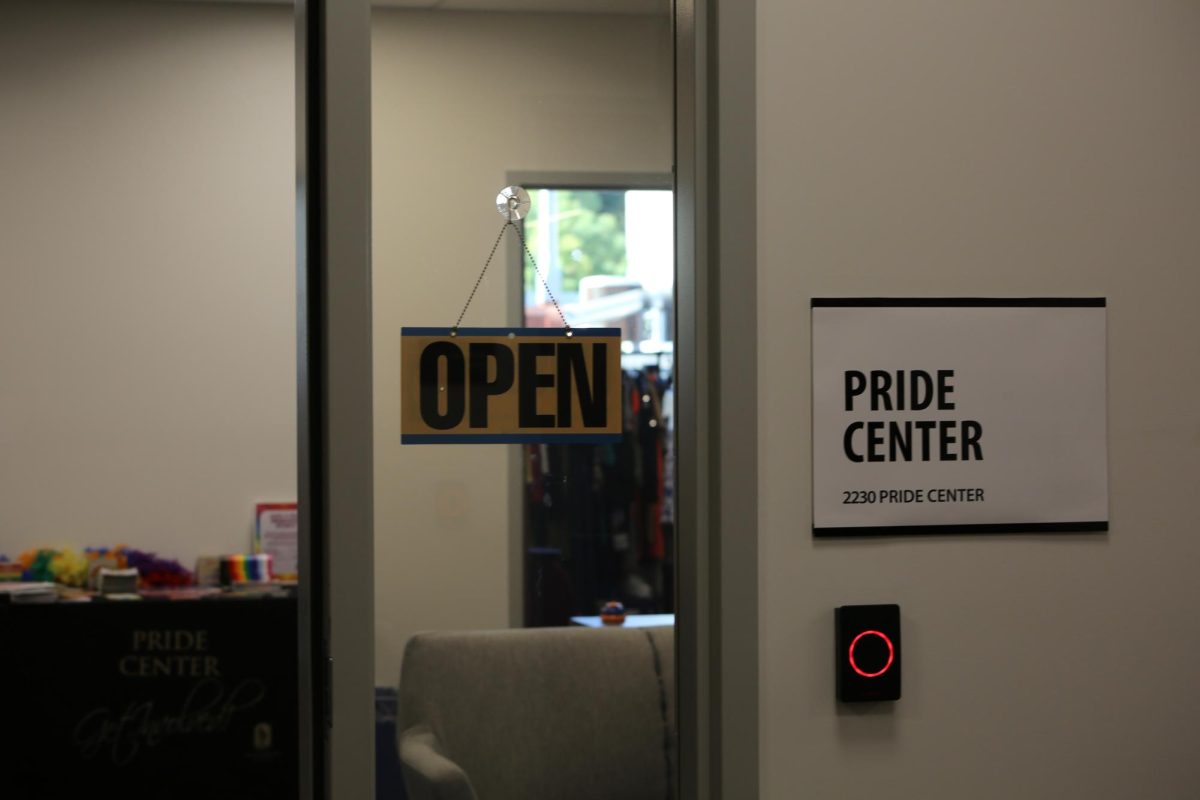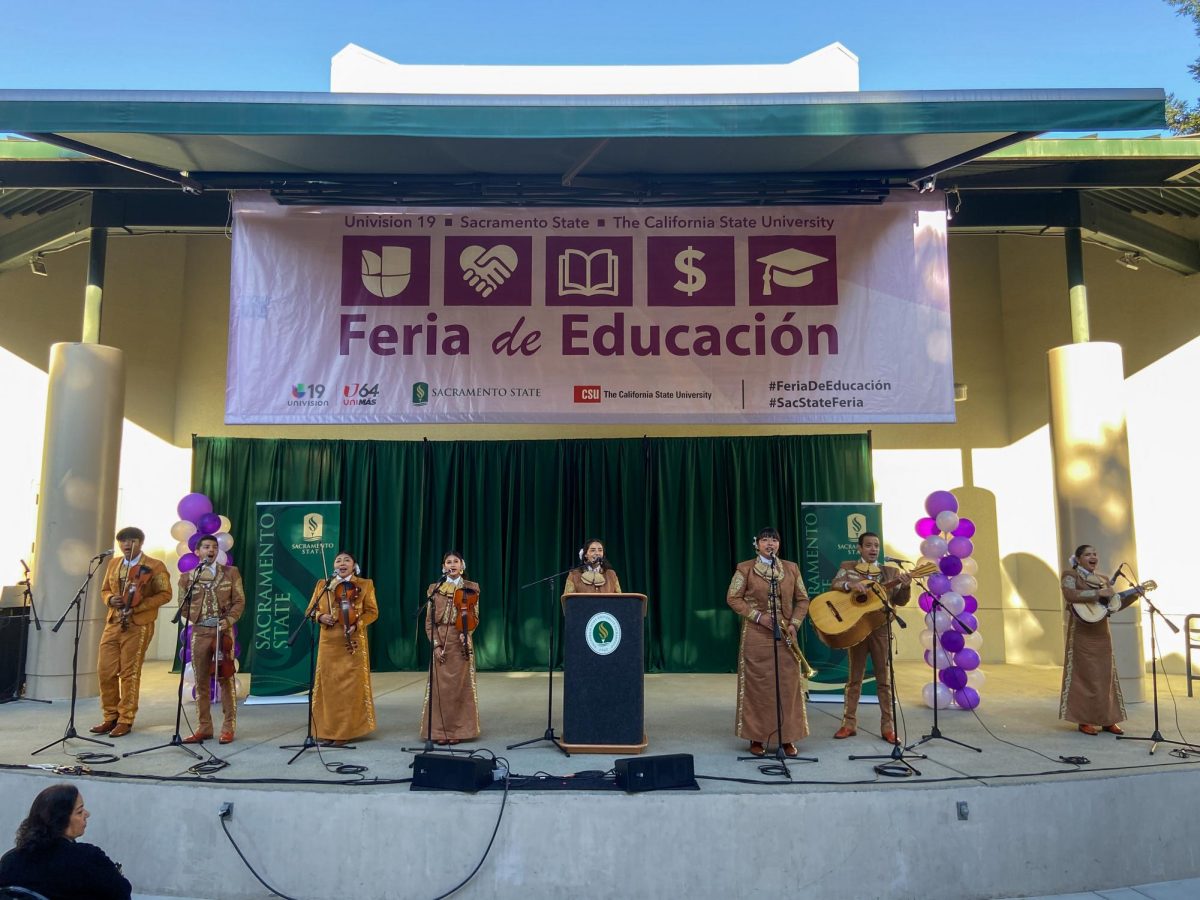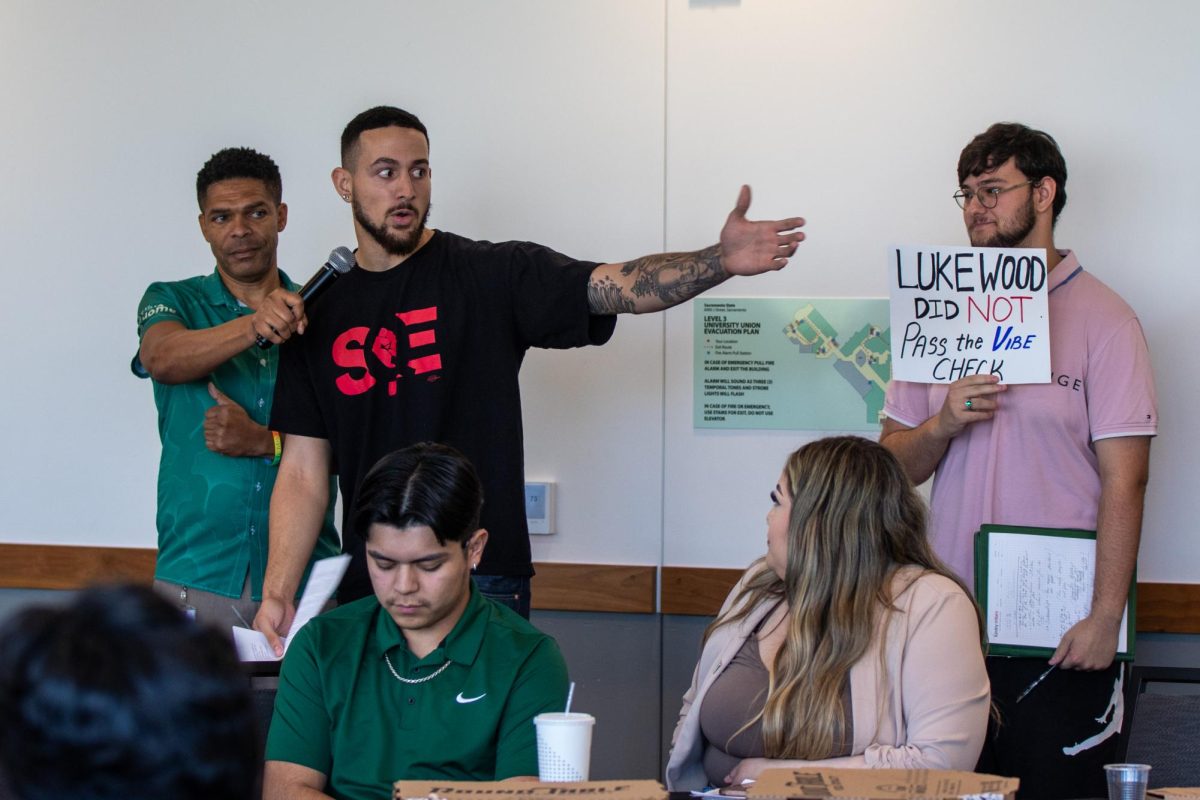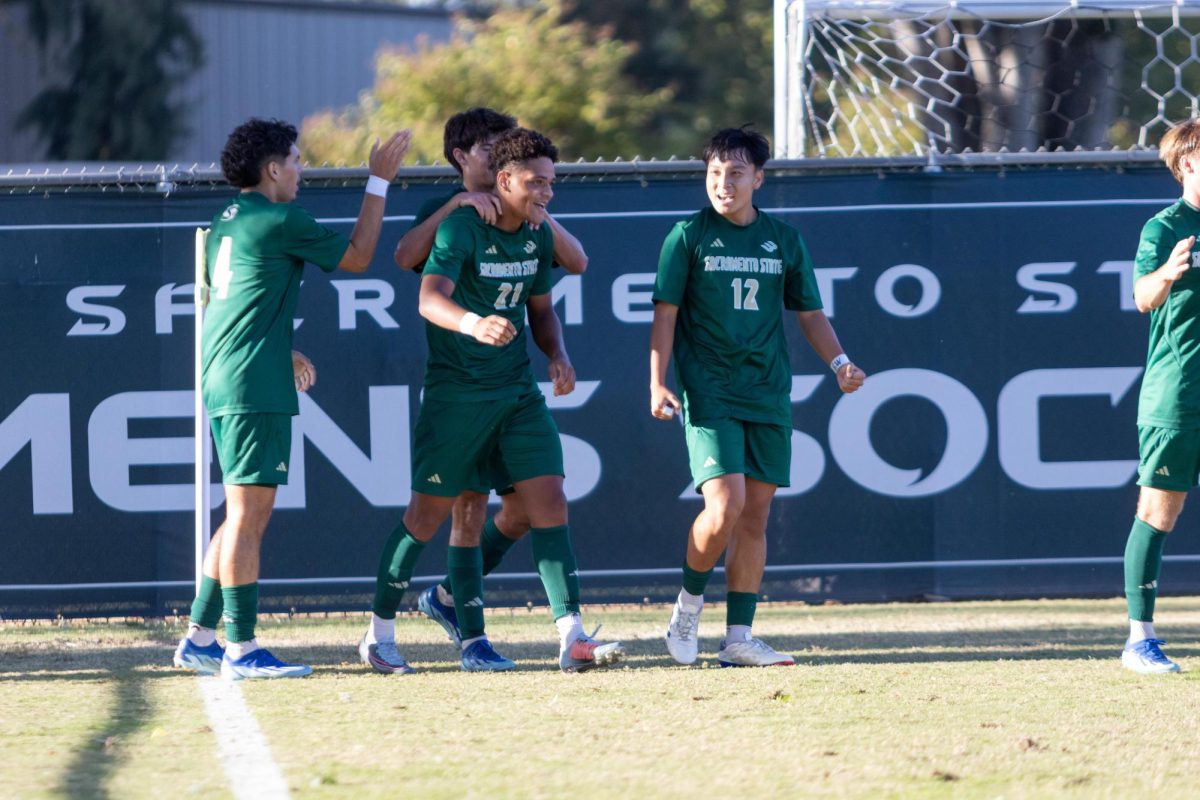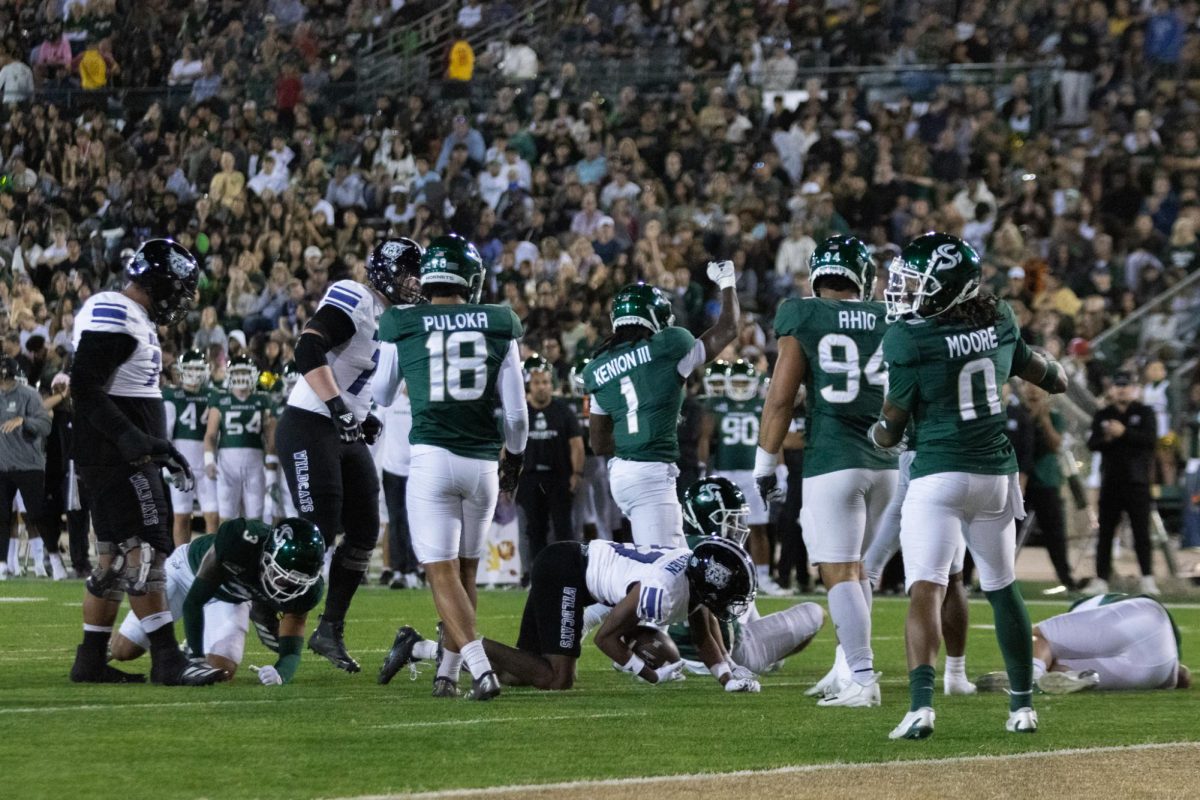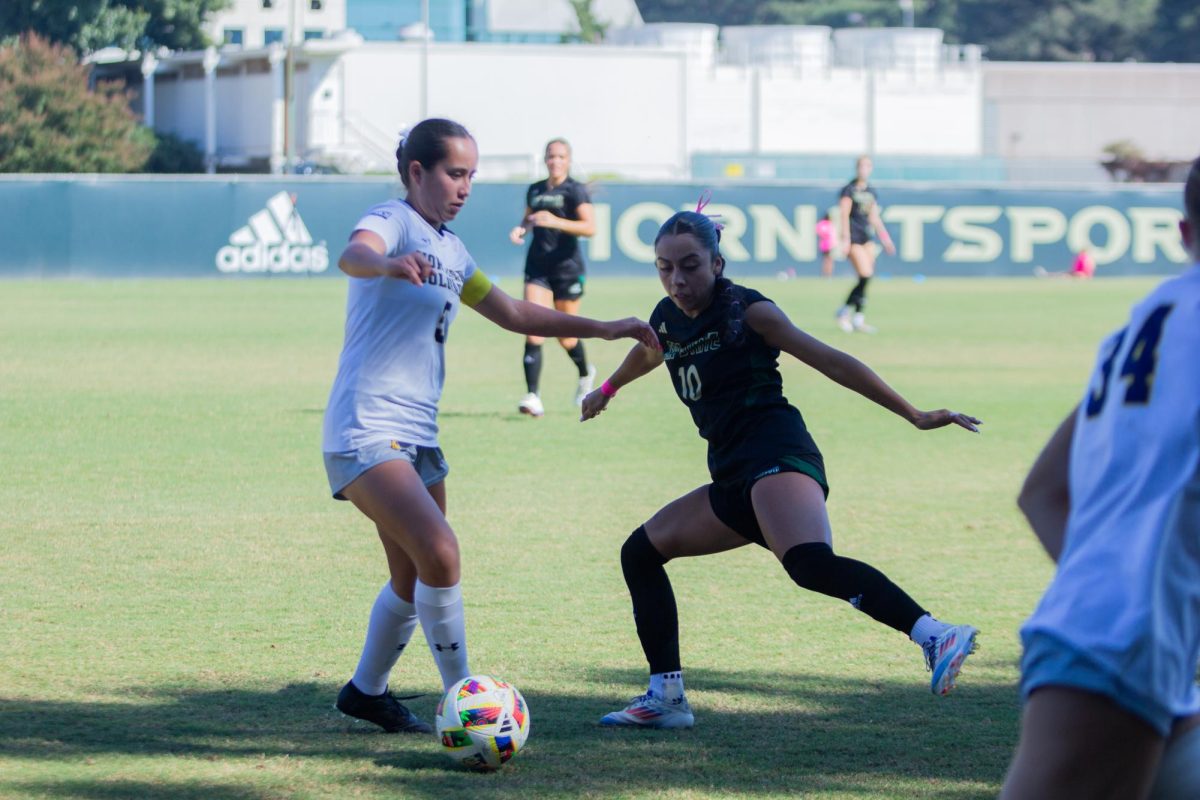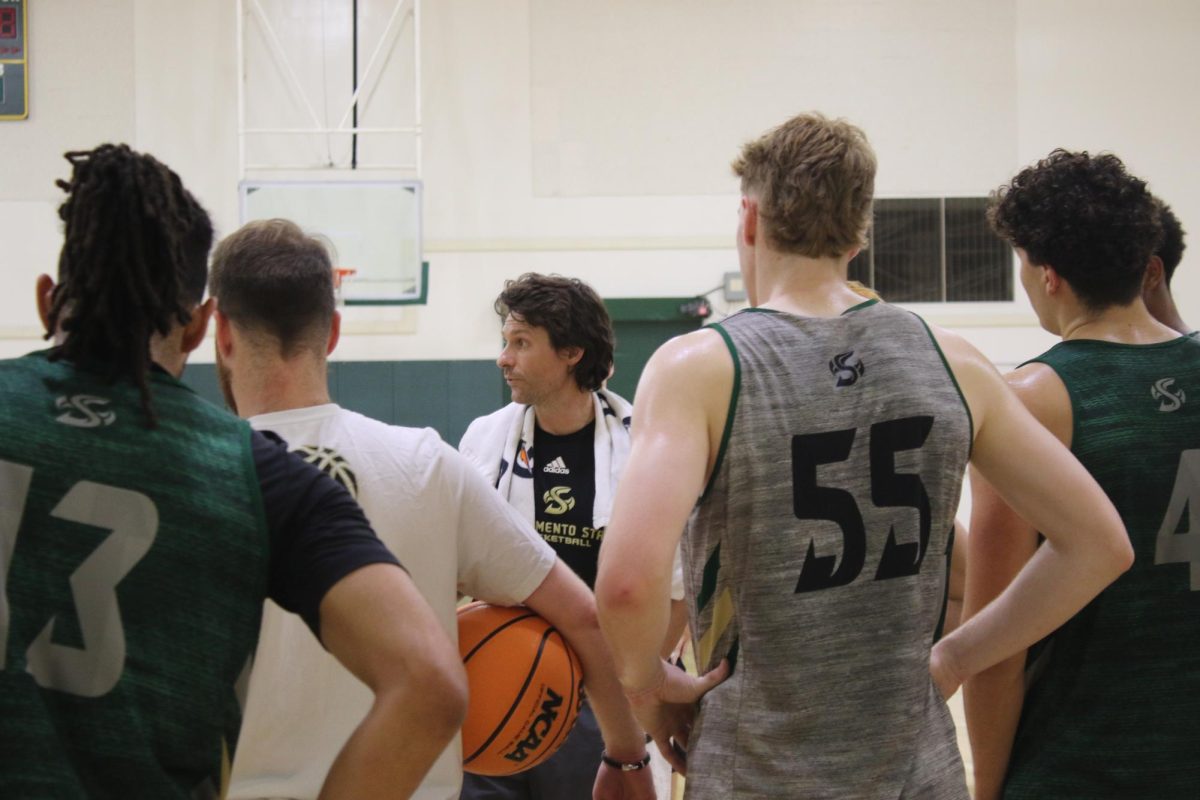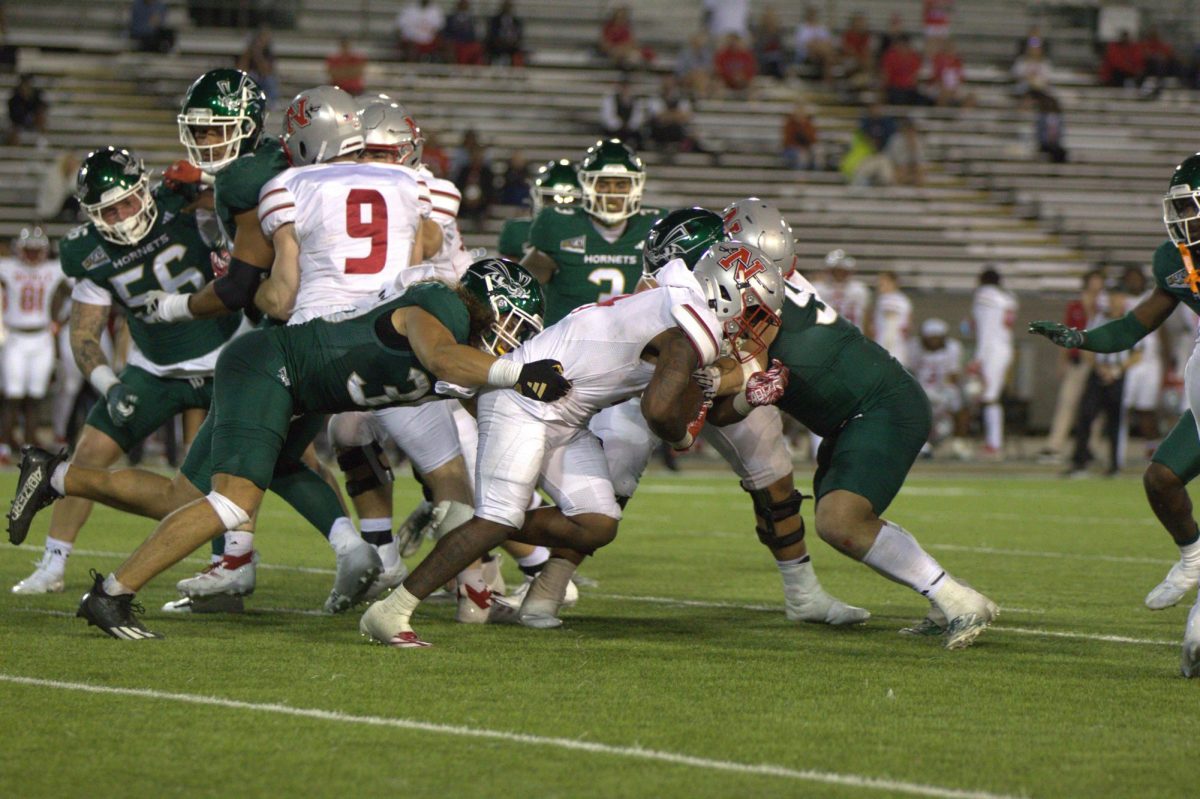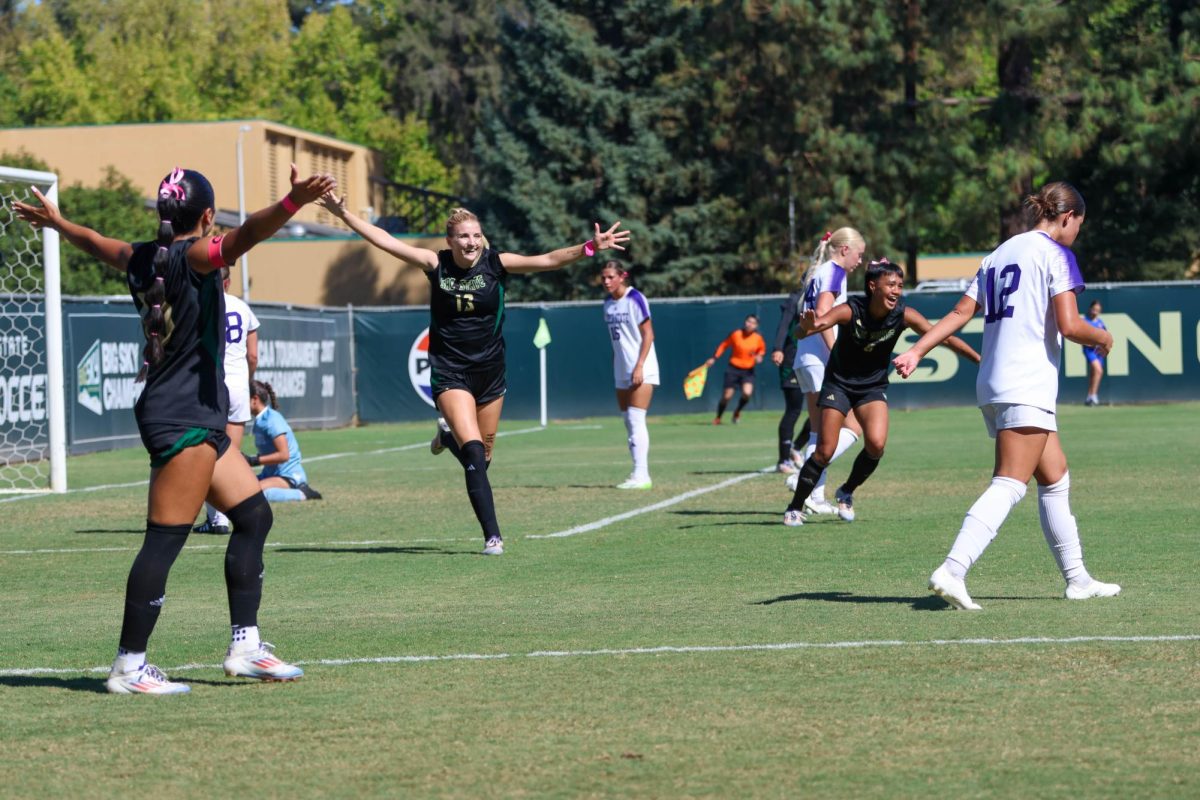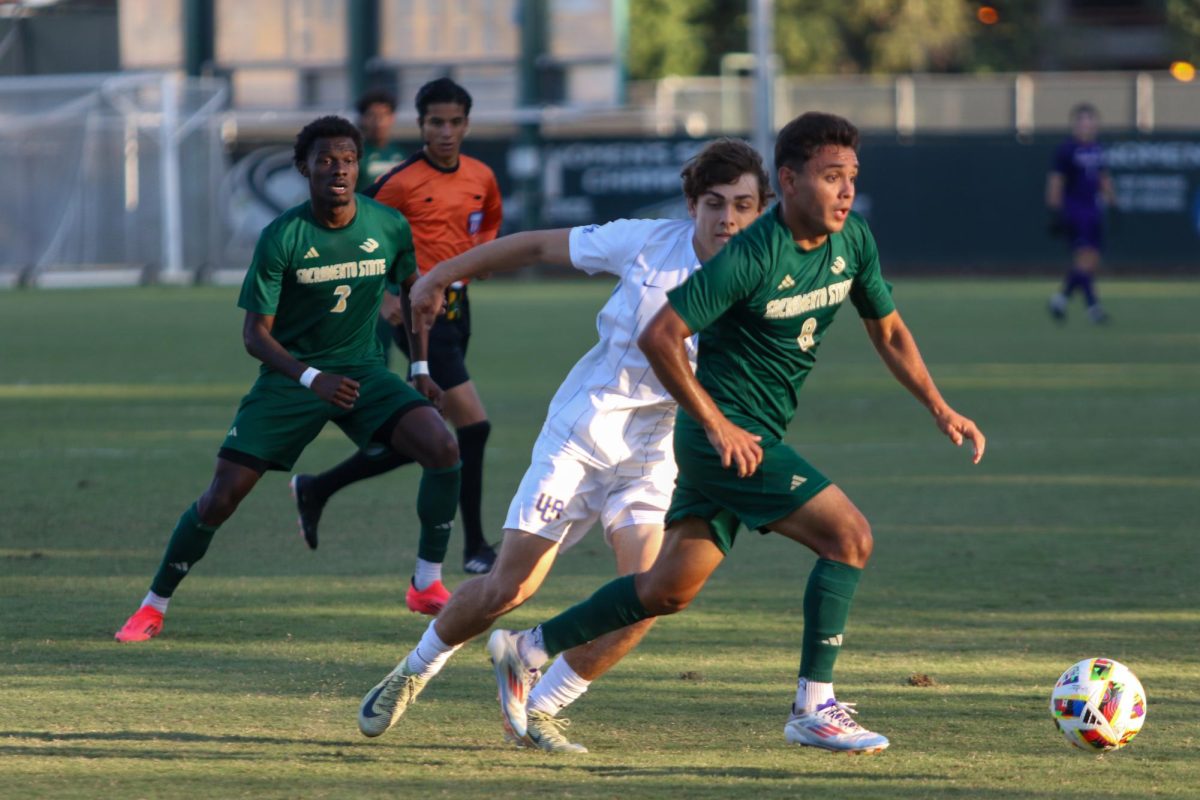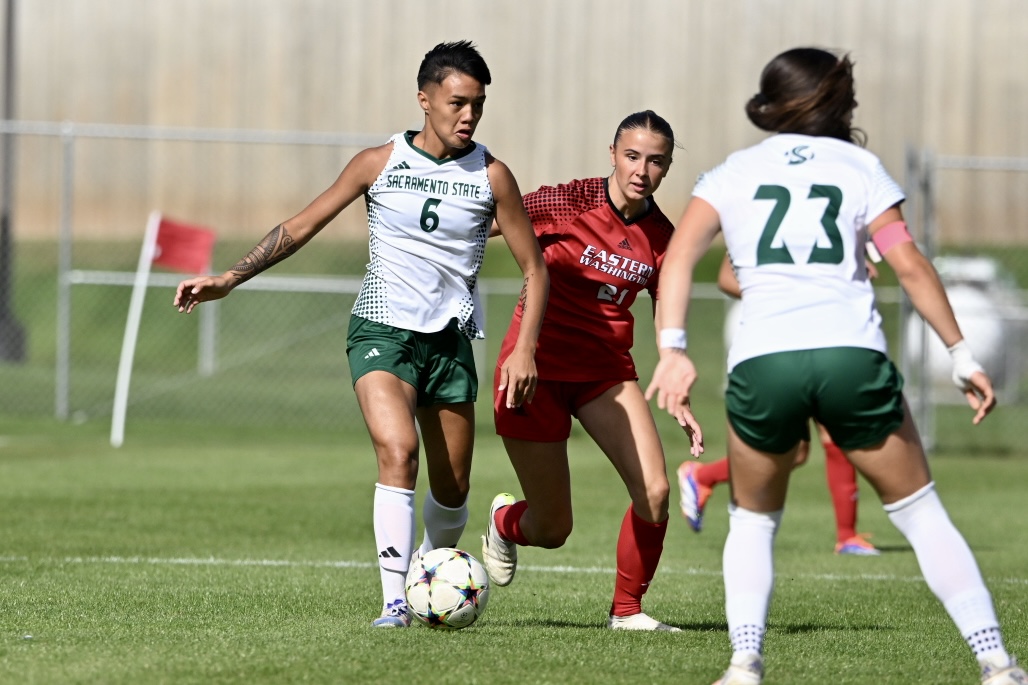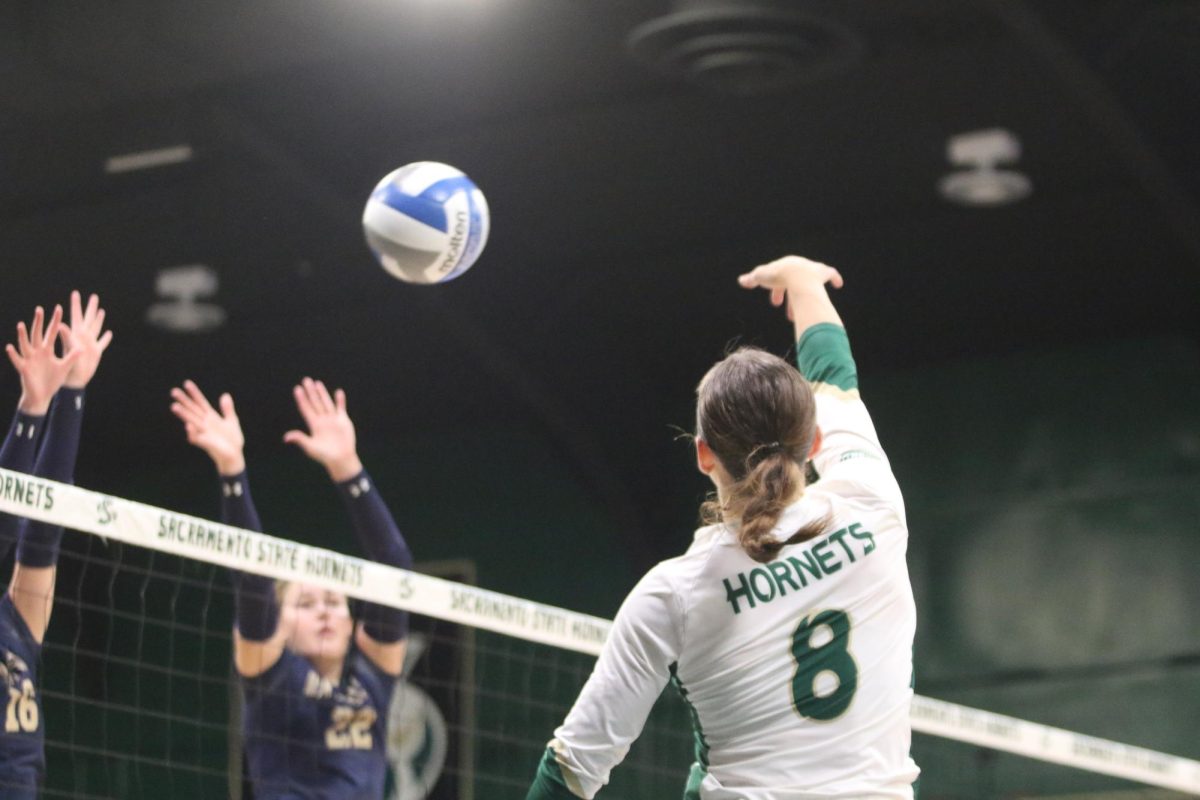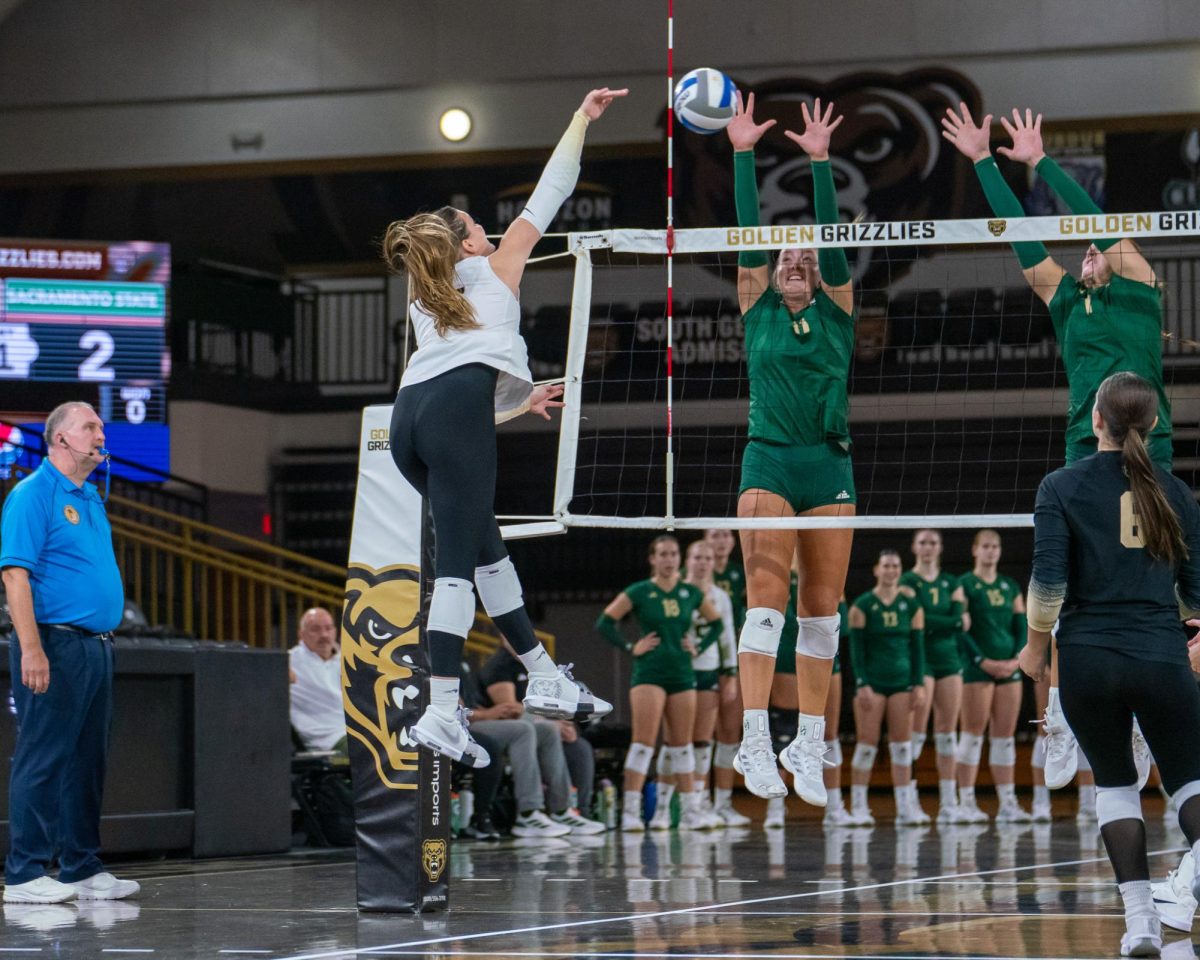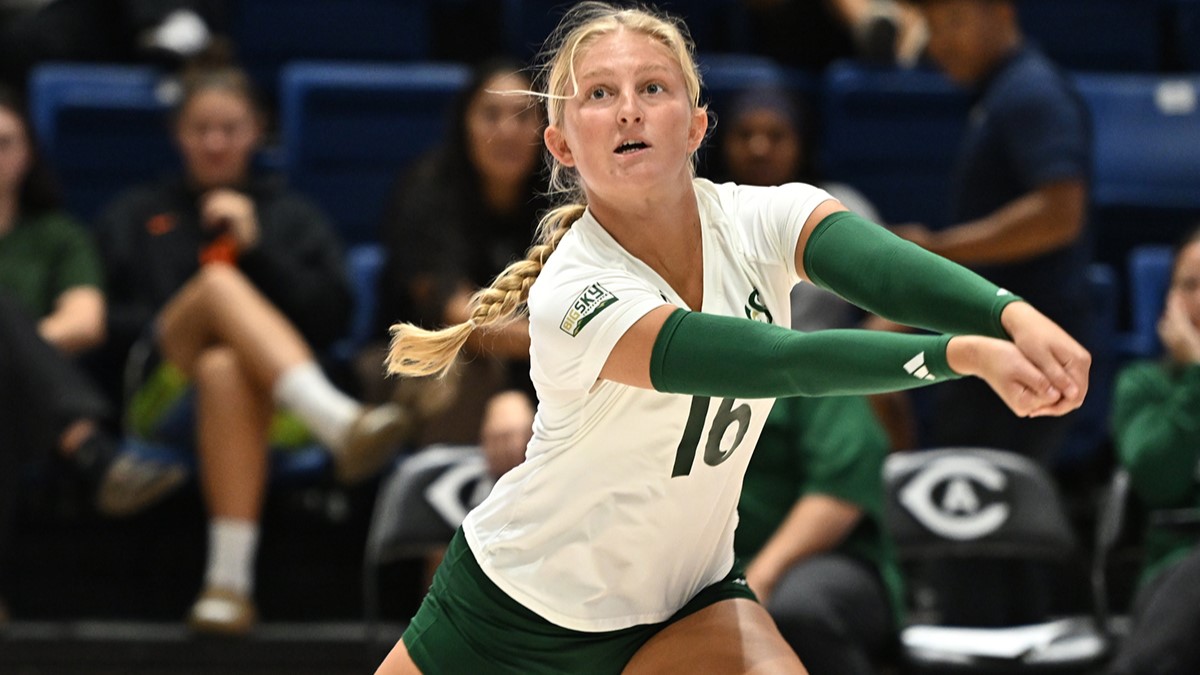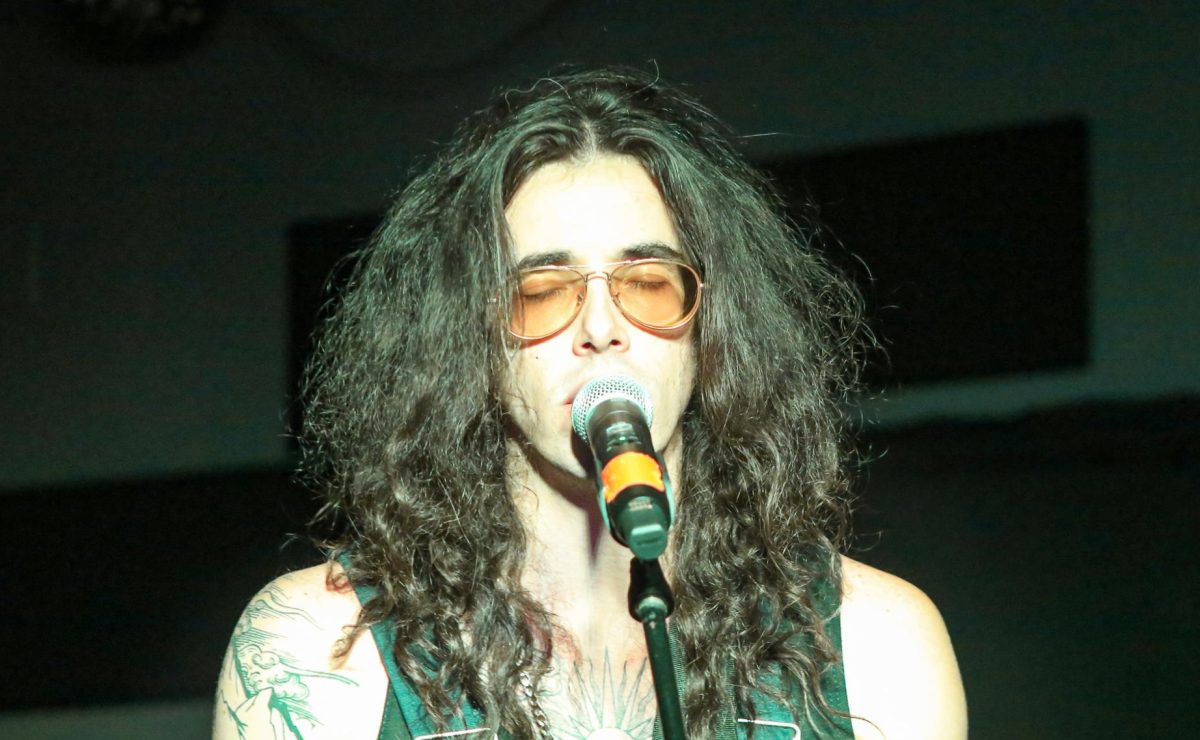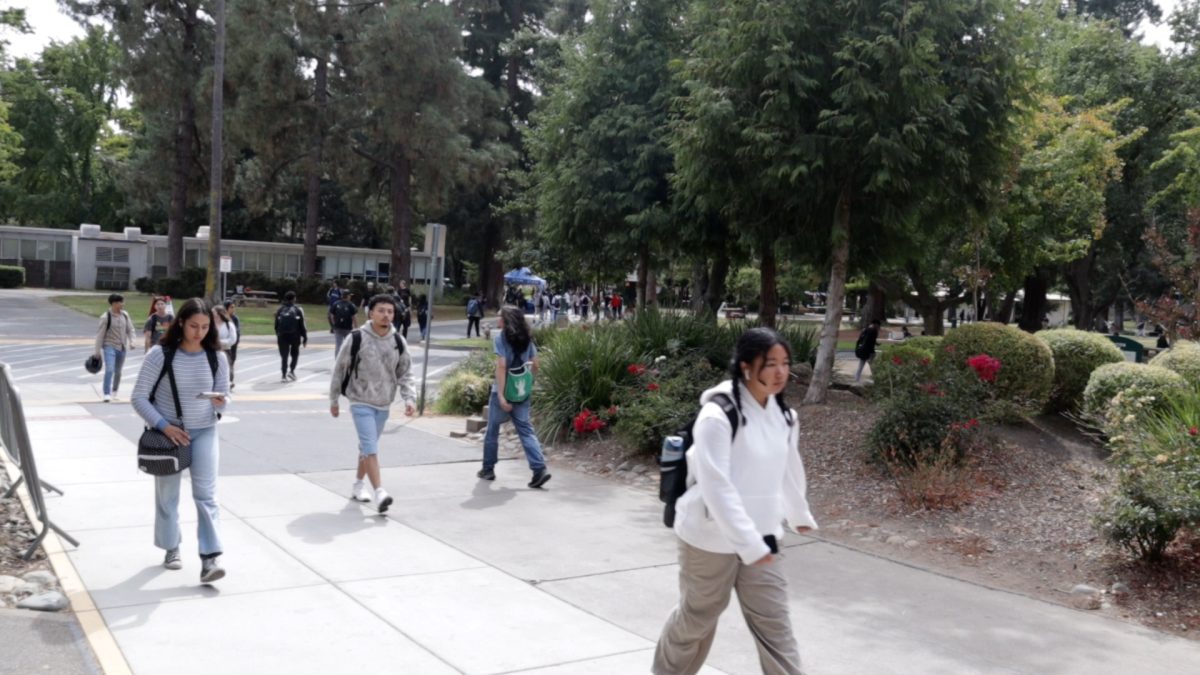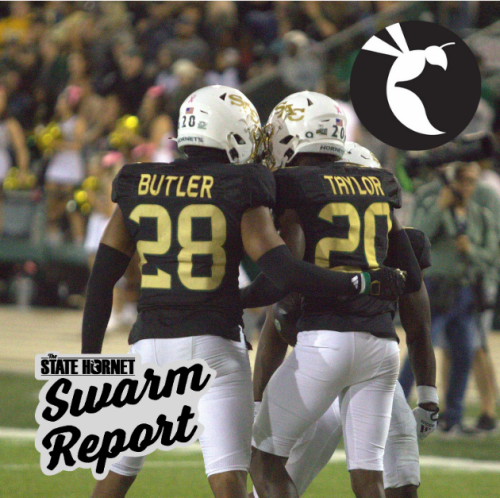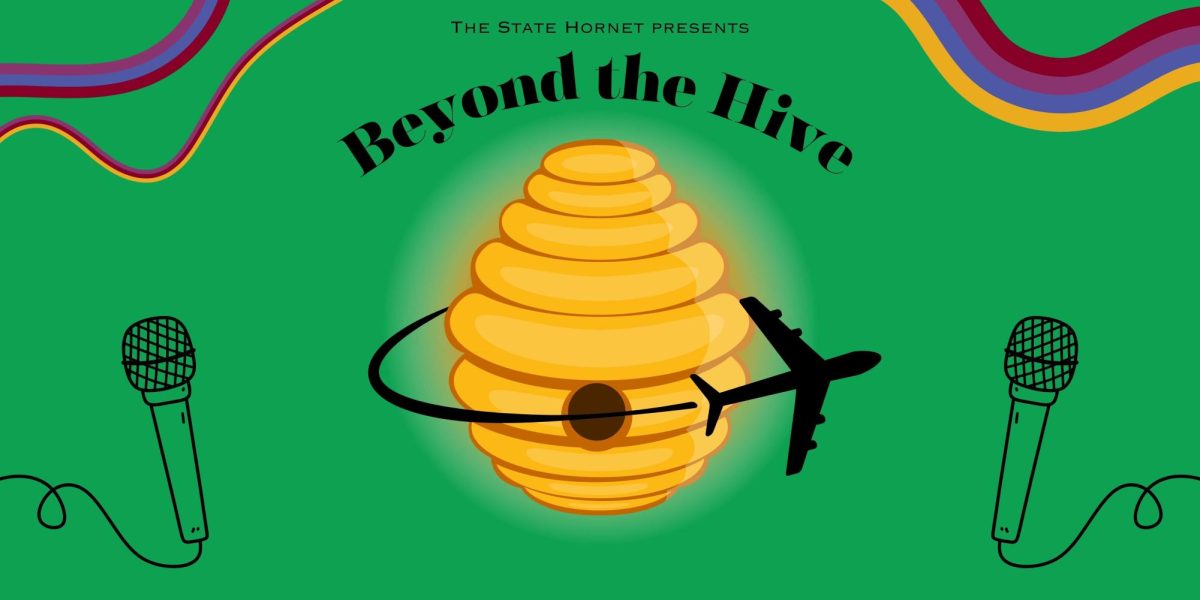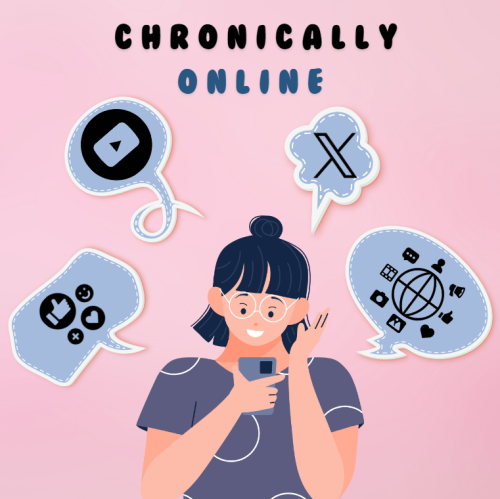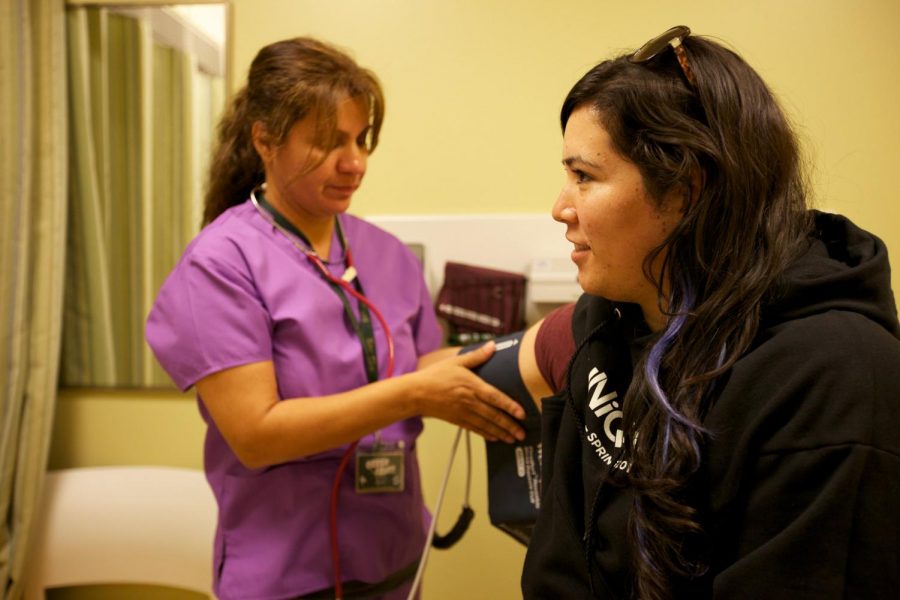CSU vaccine policies set to tighten up amid measles outbreaks
Photo courtesy of The WELL
Sac State student gets their blood pressure taken at the health and student services center located on the 2nd floor of The WELL. The WELL also provides vaccination services to students that are missing required inoculations.
May 15, 2019
By the fall 2020 semester, California State University vaccine policies are set to change, altering current exemptions to mandatory vaccines and potentially resulting in holds on accounts of unvaccinated students.
Vaccines for measles, rubella, and Hepatitis B have been required at Sacramento State since February of 2002, according to Lisa Johnson, director of health services at the university. The new policy requires exemptions be allowed for medical reasons only.
“There’s this assumption that students are vaccinated, when most adults are already immune over 90%,” Johnson said. “We don’t want to cause panic in our students. They can always check their status here at The WELL.”
According to the Center for Disease Control, 704 total cases of measles have been confirmed across 22 states in 2019. As of April 24, 38 confirmed cases have been reported in California with 28 associated outbreak cases. In Sacramento County there have been a total of three cases, two pediatric and one adult case.
Prior to this, the last largest confirmed measles outbreak occurred at Disneyland in Anaheim, California. This took place between December 2014 and April 2015 with at least 131 California residents infected, as well as six other states to include Mexico and Canada.
Story continues below map.
California Senator Richard Pan (D-Sacramento) recently proposed a bill which would effectively close a loophole in his 2015 bill which banned “personal belief exemptions,” by requiring all medical exemptions be submitted to the California Department of Public Health.
Pan’s proposed law would require doctors to submit medical exemption requests to the California Department of Public Health, which would then need to be approved. After the doctors certify they have examined the patient, they would have to include their personal information, as well as their medical license number and reason for exemption.
According to the National Vaccine Information Center, the current policy in place mandates a child get vaccinated in grades K-12, under Division 105 of the Health and Safety Code. The governing board of the district will then notify parents that they have two weeks to supply evidence of vaccination or an exemption of the vaccination requirement.
Business major Ashley Lackey said she understand where people who weren’t vaccinated are coming from, but said she supports mandatory vaccinations.
“I understand people not wanting it for themselves but it’s not fair to people who are immunocompromised,” Lackey said. “I’ve seen what happens at elementary schools and it’s really scary.”
Daniel Chaidez is a film major who said he doesn’t see vaccines as a big deal.
“I’m used to always getting vaccinated so it’s not a big thing,” Chaidez said. “My parents always vaccinated me.”
CORRECTION: May 19, 2019
This story was updated to accurately reflect that only medical exemptions certified by the California Department of Public Health will be allowed for vaccinations. An earlier version of this story incorrectly stated that no exemptions will be allowed.




